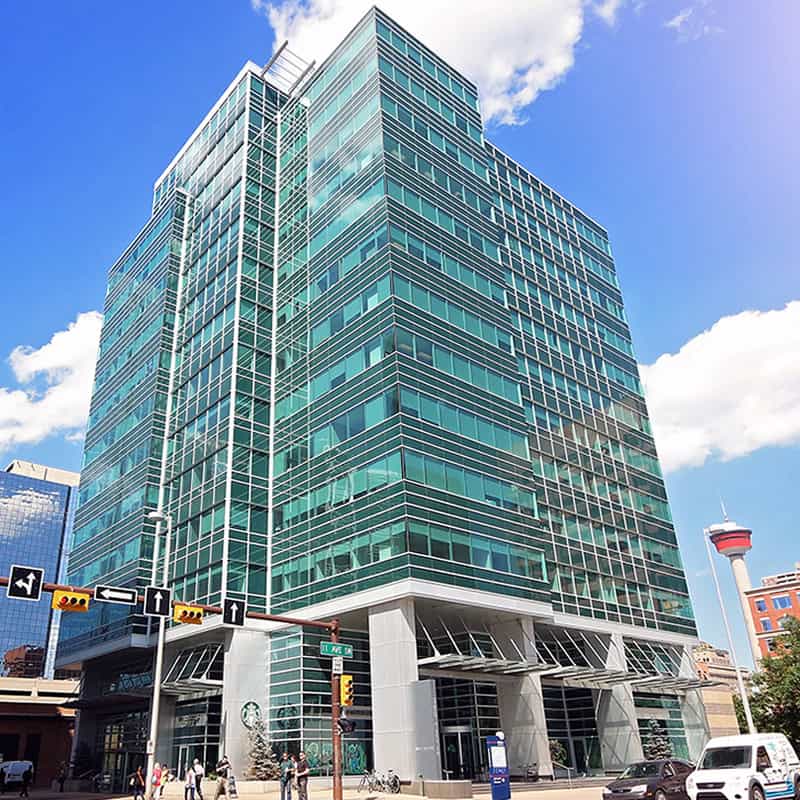
To secure an uncontested divorce in Calgary, at least one spouse must reside in Alberta for a year. Agreement on divorce aspects like property division, child custody, and spousal support is mandatory. The agreed terms are documented in a separation agreement. Applicants must provide their original marriage certificate and photographic identification. Legal advice helps in maneuvering the process. Timely and detailed documentation accelerates the process, typically lasting three months. Charges, including court and legal fees, generally range from $1,200 to $2,500. Exploring further can provide a more in-depth understanding of the process.
The outcome of your divorce can have a profound impact on the most important aspects of your life, including where you live, your relationship with your children, and your financial situation.
The most effective way to ensure that your divorce is resolved as favourably as possible is to retain one of our Calgary divorce lawyers as soon as you can.
WHAT IS AN UNCONTESTED DIVORCE?
An uncontested divorce, also known as an amicable or collaborative divorce, is a legal process where both parties agree on key divorce-related issues without the need for court intervention. This type of divorce becomes an option when both parties can concur on issues such as child custody, spousal support, and division of assets and debts.
In an uncontested divorce, one party initiates the legal proceedings, and the other party does not dispute the divorce. This is typically a less adversarial process compared to a contested divorce, saving the couple time, resources, and emotional distress. The agreement reached by the couple is then enclosed in a written document known as a separation agreement.
The advantages of an uncontested divorce are numerous, including cost-effectiveness, faster resolution, and maintaining amicable relations. It is imperative to highlight that this type of divorce requires effective communication between spouses and mutual consensus on all divorce-related matters. Lastly, despite its relatively straightforward nature, legal advice is recommended to safeguard individual rights and interests.
An uncontested divorce occurs when the divorcing couple agrees on how to resolve all of the issues ancillary to the dissolution of their marriage. These issues often include:
- The grounds for the divorce
- The division of the marital assets
- Where the children will live
- The non-custodial parent’s visitation rights
- Spousal support
- Child support
If you cannot come to an agreement about any of these issues (provided they are relevant to your situation), your divorce will be contested, which means that you will need to resort to litigation to resolve these issues.
While it may be difficult to try and hammer out resolutions to all of these issues with your spouse while your divorce is pending, it is a good idea to give it your best. There are many benefits to uncontested divorces over contested divorces, including:
- Uncontested divorces are usually significantly cheaper
- Uncontested divorces usually take much less time to finalize
- Uncontested divorces give the couple more control over the outcome of their divorce
For these reasons, if you think that an uncontested divorce is a realistic possibility, you should aggressively pursue it.
Requirements for Uncontested Divorce in Calgary
Initiating an uncontested divorce in Calgary necessitates meeting certain prerequisites to guarantee a smooth and legal process. To begin with, one of the spouses must have resided in Alberta for at least a year prior to filing the divorce application. Grounds for divorce must be established, typically proven through a separation of a minimum of one year, or alternatively, the citing of adultery or cruelty.
If children are involved, the couple must reach an agreement regarding their custody, parental access, and child support arrangements. The court places great importance on the welfare of the child, thus, these agreements must be reasonable and in the child’s best interest.
Lastly, an original marriage certificate and a photo identification of the spouse must be submitted. The uncontested divorce process is paper-intensive, so these documents must be accurate and complete.
The Uncontested Divorce Process
Having met the necessary requirements for an uncontested divorce in Calgary, the next step involves understanding and maneuvering through the actual process. An uncontested divorce, also referred to as a desk divorce or an amicable divorce, is a type of divorce where both parties agree on all matters related to the dissolution of their marriage such as property division, child custody, and spousal support.
The process starts with one party filing for the divorce. This individual, known as the applicant, must have been a resident in Alberta for at least one year prior to filing. The applicant’s spouse, referred to as the respondent, does not need to file any paperwork, but must agree to the divorce and all its terms.
Once the divorce application is filed, the court will review the documents. No court appearance is necessary during this process. Once the judge approves the divorce, a Divorce Judgement is issued, officially terminating the marriage.
The duration of an uncontested divorce typically takes about three months from the date of filing the paperwork to the court issuing the divorce judgement. This timeline, however, can vary based on individual circumstances.
Creating a Separation Agreement
Crafting a separation agreement is an essential step in the process of an uncontested divorce, as it lays the foundation for a smooth and amicable settlement between the parties involved. This agreement outlines the terms of the divorce and details the division of assets, debts, child custody, and spousal support.
To create an effective separation agreement, consider the following steps:
- Issue Discussion: Meet with your spouse to discuss and agree on matters such as property division, child custody, spousal support, and child support. It is essential to approach these discussions with openness and a willingness to compromise.
- Draft the Agreement: Once all issues are agreed upon, record these decisions in a written document. This should be clear and precise to avoid future misunderstandings.
- Legal Review: It’s advisable to have your agreement reviewed by a legal professional. They can verify it is fair, meets legal standards, and that both parties understand their rights and obligations.
Cost of an Uncontested Divorce in Calgary
Understanding the cost of an uncontested divorce in Calgary is essential for those seeking an amicable end to their marriage. The financial implications can greatly influence the decision to proceed with this type of divorce, as it is generally a cheaper and faster process than a contested divorce.
- Court Fees: The court charges a fee for filing a Statement of Claim for Divorce, which is currently set at $260. If you need to serve documents to your spouse, additional fees may apply.
- Legal Fees: If you decide to hire a lawyer to handle your divorce, the costs will vary depending on the complexity of your case and the lawyer’s hourly rate. However, many law firms offer flat rates for uncontested divorces, ranging from $1,200 to $2,500.
- Miscellaneous Costs: These may include costs for obtaining copies of the marriage certificate and other necessary documents, postage fees, and any potential fees for mediation or counseling services if required.
Why You Need a Lawyer even if Your Divorce is Uncontested
If you are currently in the midst of a divorce and believe that it’s going to be uncontested, you may be wondering whether you need to talk to a lawyer at all. It’s important to keep in mind that the outcome of your divorce can affect important aspects of your life for years, so it’s always highly advisable for anyone going through a divorce to retain legal counsel. Here are some of the specific ways that an Calgary divorce lawyer can help you through your uncontested divorce:
- Advise you about your rights – even when a divorce is uncontested, it’s important that you know your rights with respect to your marital property, children, and ongoing support. If you’re not aware of your rights, you risk signing them away with little recourse in the future.
- Communicate with Your Spouse on Your Behalf – If your divorce is uncontested, you should do everything you can to keep it that way. For many divorcing couples, the more they communicate directly, the greater the chances that they will end up in a conflict. When you retain a lawyer, however, he or she can communicate with your spouse for you and minimize your direct contact.
- Prepare and/or Review Your Paperwork – To begin a divorce, one party must file a Statement of Claim for Divorce that must include details about the marriage, the grounds for the divorce, and claims of support payments, custody, and access. In addition, it can include a claim for marital assets. It is critical that this document accurately reflects your and your spouse’s wishes, as once it’s terms are incorporated into a Judgment of Divorce, those terms become legally binding.
Who Can Apply for an Uncontested Divorce?
Anyone can apply for an uncontested divorce, provided they meet the general requirements for divorce in Canada. In addition to meeting residency requirements in order for the court to exercise jurisdiction over your marriage, you must have grounds for divorce. There are three recognized grounds for divorce in Canada:
- Adultery
- Cruelty (mental, physical and/or emotional)
- The spouses have been separated for a year or more (no-fault divorce)
Uncontested Vs Joint Divorce
Exploring the legal terrain of divorce can be challenging, not least because of the different types of divorces available, such as uncontested and joint divorces. An uncontested divorce is one where both parties agree on all aspects of the divorce, including property division, child custody, and spousal support. This agreement results in a faster, less costly, and less contentious divorce process. In this type of divorce, one party files the divorce application, and the other party does not contest it, hence the term ‘uncontested’.
On the other hand, a joint divorce is when both parties jointly file a single divorce application. This type of divorce involves cooperation between the spouses, as they must agree on all terms of the divorce and sign the same application. Just like an uncontested divorce, a joint divorce is less adversarial, cost-effective, and quicker than a contested divorce. However, it requires a higher degree of consensus between the parties.
What Information Do I Need To Prepare?
If you are considering filing for divorce, you should gather important legal and financial documents. Remember, during a divorce, you may lose access to your home, so gather these sooner rather than later. Examples of the documents to collect include:
- Bank statements
- Paystubs
- Tax returns
- Documentation regarding any retirement accounts
- Investment account statements
- Mortgage documents
- Credit card statements
- Birth certificates
- Insurance policies
- Business documents
Frequently Asked Questions
What Happens if My Spouse and I Cannot Agree on All Terms for an Uncontested Divorce?
If you and your spouse cannot agree on all terms for an uncontested divorce, you may need to engage in mediation or court proceedings to resolve the disagreements, moving to a contested divorce scenario.
Can I Apply for an Uncontested Divorce if My Spouse Lives Outside of Alberta?
Yes, you can apply for an uncontested divorce in Calgary if your spouse lives outside Alberta, provided you have lived in Alberta for at least one year prior to filing your divorce application.
Can an Uncontested Divorce Be Reversed or Changed After It’s Finalized?
Once an uncontested divorce is finalized in Calgary, it cannot be reversed. However, certain aspects, such as custody arrangements or support orders, can potentially be modified through a court process if significant changes occur.
What Happens if My Spouse Initially Agrees to an Uncontested Divorce, but Changes Their Mind During the Process?
If a spouse initially agrees to an uncontested divorce but later changes their mind, the process may become contested, leading to possible court hearings to resolve disagreements, consequently prolonging and complicating the divorce process.
How Does an Uncontested Divorce Impact the Division of Assets and Debts?
In an uncontested divorce, division of assets and debts is mutually agreed upon by both parties, minimizing conflict. This agreement is typically incorporated into the final divorce decree, formalizing the distribution legally and equitably.
How can our Calgary Uncontested Divorce Lawyers Help You?
To sum up, an uncontested divorce in Calgary can be a more efficient and conflict-free process. However, it requires a clear understanding of the process, requirements, and the formulation of a separation agreement.
The choice between an uncontested and joint divorce depends on the specific circumstances. In this complex journey, expert guidance such as that offered by Spectrum Family Lawyers can be invaluable.
Armed with knowledge, individuals can get through this challenging phase more easily and confidently.

Our Calgary intake staff are standing by to help you. Call 403-452-0043 [toll free 1 (888) 410-1677] or contact us online for general inquiries.
We also have a dedicated intake form to help you get the ball rolling. Our intake team will review your specific case and advise you on the next steps to take as well as what to expect moving forward.

Our Calgary office is open 8:30 a.m.—4:30 p.m., Mon—Fri.


Raveena Gill
FAMILY LAWYER
Raveena’s approach focuses on incorporating each particular client’s unique values and goals when determining the best course of action in their matter
The Legal Review Process by Spectrum Family Law
- Spectrum strives for high-quality, legally verified content.
- Content is meticulously researched and reviewed by our legal writers/proofers (usually local law students).
- Details are sourced from trusted legal sources like the Family Law Act.
- Each article is edited for accuracy, clarity, and relevance.
- If you find any incorrect information or discrepancies in legal facts, we kindly ask that you contact us with a correction to ensure accuracy.


